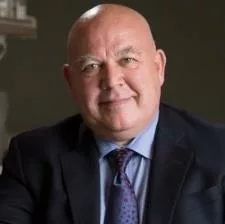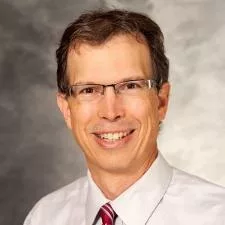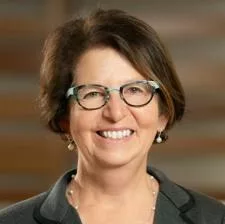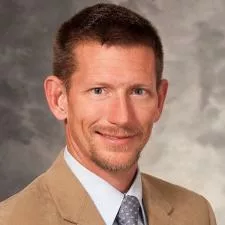Celebrating National Women Physicians Day with a look back at UW history
On Feb. 3, we honor the path that women in medicine have paved since 1849 as we recognize National Women Physicians Day.
Nearly all medical and scientific disciplines have a society or association that serves to connect practitioners and researchers together with like-minded colleagues to advance their field.
They organize conferences, provide resources, foster networking opportunities, share ideas, provide scholarships, and more.
Most are led by boards and executive committees made up of the best and brightest minds in the field. The following five faculty in the UW School of Medicine and Public Health served, will serve, or recently served as president of their professional societies during the 2020-21 academic year.

Galipeau is a professor of medicine and associate dean for therapeutics development. He is currently president-elect of the International Society for Cell & Gene Therapy. He will assume the presidency on June 1, 2022.
What is the vision of this society?
Galipeau: Our vision is to improve lives through safe and effective cell and gene therapies through our mission of driving clinical translation worldwide. We are the only society solely focused on rapidly developing and deploying cell pharmaceuticals in a rapidly evolving biopharma landscape. We have a strong emphasis on ethics and distributive justice issues for stem cell therapies.
What were one or two top accomplishments of the society in the last year?
Galipeau: On the international scene, we have been working with the World Health Organization and other international organizations on standards for cell pharmaceutical manufacturing and the nomenclature of stem cell products. We host very successful international virtual and in-person meetings with attendance by academics, industry. and regulatory thought leaders. More locally, in 2019 we hosted our North American Regional meeting in Madison. It was a huge success with meaningful participation of regional academic centers, including UW–Madison’s own Stem Cell and Regenerative Medicine Center.

Lucarelli, the Dortzbach Professor of Ophthalmic Facial Plastic Surgery, finished up his term as president of the American Society of Ophthalmic Plastic & Reconstructive Surgery in December 2020 and his term as immediate past president at the end of 2021.
Can you say a little bit about this society?
Lucarelli: ASOPRS is dedicated to excellence in clinical care, education, and research in the field of oculofacial plastic surgery. Our members train first as ophthalmic surgeons and subsequently pursue fellowship training in the surgical care of patients’ issues around the eye, including eyelids, face, orbits, and tear ducts. We are the primary professional organization in North America for this subspecialty. ASOPRS also organizes and oversees 60 two-year fellowship training programs in this field.
What are some ways you group has helped its members during the COVID-19 pandemic?
Lucarelli: Our members are surgeons who practice in settings ranging from large academic centers to very small private practices. The COVID-19 pandemic has had a sudden and profoundly negative impact on our members. ASOPRS came together as an organization quickly to share guidance with our members about how to respond during this time. ASOPRS leadership provided frequent communications with resources and advocacy opportunities to meet with lawmakers about the needs of patients and surgeon practices. Except for our fellowship training programs, our educational offerings were converted rapidly to virtual formats.

A professor of neuroscience, Robertson is president-elect of the Biophysical Society and will assume the presidency in February of 2022.
What are the goals of the Biophysical Society and how are you advancing those goals?
Robertson: The society brings together a global and interdisciplinary community of scientists at the interface of the physical and life sciences. My job as president will be to promote excellence in our quest for new biophysical knowledge and methods. A key strategy in achieving this goal is to inspire young scientists.
What is something you are looking forward to doing as president?
Robertson: Along with many leadership duties, one of my great privileges and joys as president is to select the annual meeting’s “Biophysical Society Lecturer,” the highest honor we bestow. For the 2023 meeting I have selected the recently named Nobel Laureate Ardem Patapoutian of the Scripps Institute. He has an amazing story of success, fleeing violence in Lebanon as a young man with few resources and finding a passion in academic science in California. I want every decision I make as president to ultimately reach someone who might otherwise feel on the margins, to inspire them to ask, “Why not me?” Dr. Patapoutian’s lecture will be recorded and publicly available.

Schnapp is the chair of the Department of Medicine and the current president of the American Thoracic Society. She will serve until May 2022.
Can you tell us a little about this society and the role it’s played in the COVID-19 pandemic?
Schnapp: The American Thoracic Society is the oldest and one of the largest professional societies in pulmonary medicine in the world. So along with our society activities like meetings and conferences being impacted by the pandemic, our pulmonary and critical care doctors were directly impacted as frontline providers. We very quickly mobilized our outreach and educational resources and started having frequent webinars on best practices for interventions and treatments. We assembled an expert group to make recommendations and develop guidelines for the treatment of critically ill COVID patients. We organized weekly conference calls for pulmonary and critical care division chiefs around the country to share experiences and lessons learned. It has been incredible to see everyone rally together.
What makes the membership of your society unique?
Schnapp: It’s a really open and inclusive group and we strive for transparency. We are collegial, collaborative, and very outwardly focused. Our tagline is “helping the world breathe” and we have a strong ethos of advocacy.

Wubben is a clinical professor in the BerbeeWalsh Department of Emergency Medicine and is serving as the president of the Air Medical Physician Association until October 2022.
What have you seen members of your association overcome during the last few years?
Wubben: From a resiliency standpoint, our collective membership has had to navigate an ever-changing landscape from the earliest days of the pandemic. This led to quite a bit of social media and online networking as flight programs had to figure out what we could (or could not do) in the unique and challenging circumstances we found ourselves in. Even fundamental questions of how to approach certain types of patients in the back of a helicopter or aircraft were being asked in the early days.
How have you seen your members support each other?
Wubben: Our members have done a lot of mutual community building, frequently behind the scenes, that went a long way in supporting our community during what has been the most trying time for most of us in our professional careers. Just knowing that there were others out there in the same boat, that you could lean on to ask questions, meant a lot for our members.